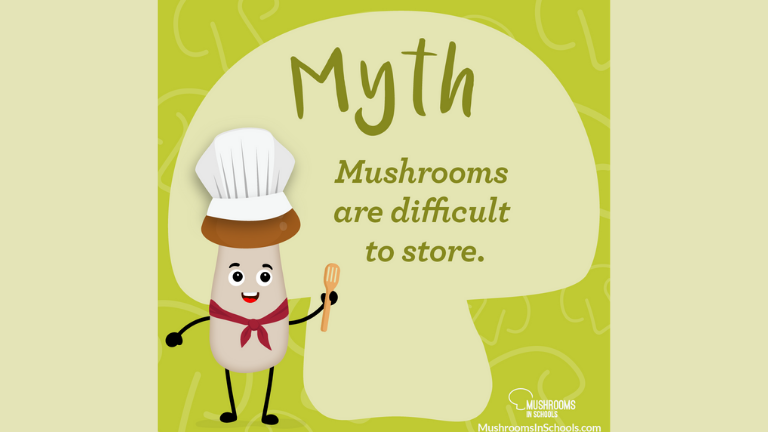 Schools
Schools
Myth Busting the Mighty Mushroom
You have questions about mushrooms, and we have answers! Mushroom myths are all too common for this amazing, versatile ingredient. Read on as we set the record straight for 5 myths about the mighty mushroom.
MYTH: Mushrooms are difficult to store.
FACT: Mushrooms are easily stored in their original packaging and can even be frozen for later use!
Commercial mushrooms often arrive in a cardboard box with air vents. You should keep the mushrooms in this packaging and place directly in the refrigerator. If stored properly, mushrooms will easily store for up to one week. Mushrooms are not fans of moisture or strong odors, so do not place your mushrooms in the crisper or near fragrant foods like onions or garlic.
Need to freeze your mushrooms? It’s possible! Mushrooms should be cooked prior to freezing to maintain a great texture. Simply sauté or steam raw mushrooms until they are fully cooked, spread them out on a cookie sheet and place in the freezer until they are completely frozen, and pack your cooked mushrooms in freezer-safe storage until you are ready to use them! Check out Video 2 from our Layers of Flavors Curriculum for more tips and tricks to simply store fresh mushrooms!
MYTH: You should never wash mushrooms.
FACT: Mushrooms can be cleaned with a wet paper cloth or towel. It is okay to quickly rinse with cool water – just make sure to dry them off prior to cooking!
There is quite a debate in the culinary world about whether mushrooms can be washed in water. Mushrooms are porous, meaning they easily soak up water, and you don’t necessarily want your ingredients waterlogged prior to cooking!
Commercially purchased mushrooms are grown indoors and likely completely free of soil or debris. If the mushrooms look clean, it’s okay to skip the wash and wipe off mushrooms with a wet paper cloth or towel. If you want to wash your mushrooms, that’s okay too. Quickly rinse the mushrooms in cool water. You can use the sprayer head at your produce station to lightly rinse the mushrooms, shake off excess moisture, and air dry before processing! You can print our Fresh Mushrooms Handling Poster for more tips on mushroom storage and handling.
MYTH: Mushrooms should not be fed to children.
FACT: Mushrooms purchased through your commercial distributor or USDA DoD Fresh are absolutely safe for children and have many health benefits!
Mushrooms purchased through your commercial distributor or USDA DoD Fresh are absolutely safe to feed to children. Some popular varieties of mushrooms that you purchase for school meals include white mediums, cremini, portabella, and shiitake. Explore more varieties of mushrooms here.
MYTH: Eating raw cultivated mushrooms is dangerous.
FACT: You can absolutely consume raw cultivated mushrooms purchased through your commercial distributor or USDA DoD Fresh.
Many delicious dishes include raw mushrooms. Our Pizza Salad and Classic Spinach Salad recipes both incorporate fresh, raw mushrooms. Mushrooms are a versatile ingredient and can be eaten raw, roasted, marinated, sauteed, and more!
MYTH: Mushrooms are mostly water and have no nutritional value.
FACT: The mighty mushroom is a nutritional powerhouse. Most varieties contain more than 12 vitamins and minerals. They are also produce’s only natural source of Vitamin D!
A diet that includes mushrooms has many health benefits; mushrooms contain selenium, potassium, B vitamins, and even Vitamin D when exposed to UV-light during the growing process! Mushrooms are exceptionally nutrient-dense, meaning they are high in vitamins and minerals per calorie.
Interested in learning more about how mushrooms can serve your school nutrition program?
Check out the ever-growing recipe collection from Mushrooms In Schools. Do you have a student favorite mushrooms dish to share? Reach out and we will reward a finished recipe with picture. We also have turnkey Classroom Education resources to teach children about the mighty mushroom in a classroom setting. Want to know more about mushroom nutrition? Find nutrition-focused handouts on mushrooms from the Mushroom Council here.
Would you like to share these mushroom myths and facts on social media?

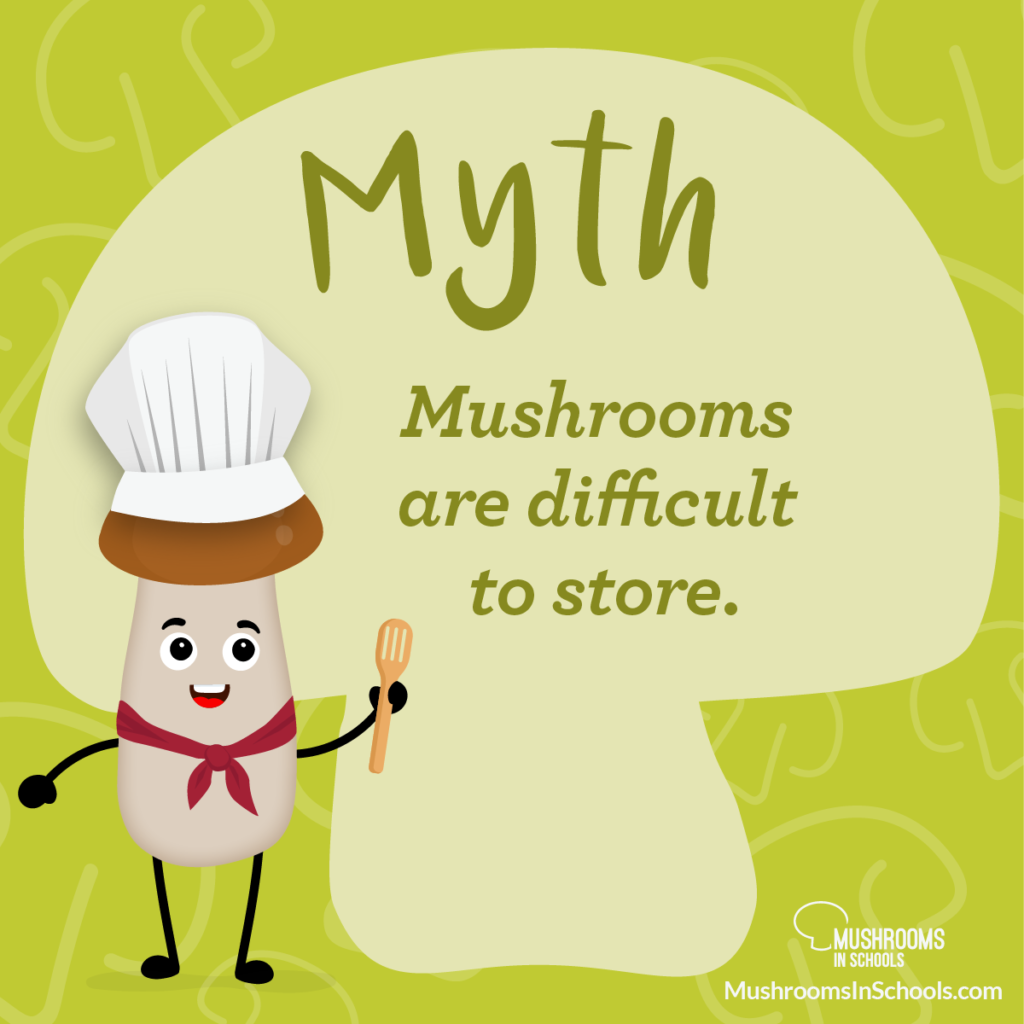
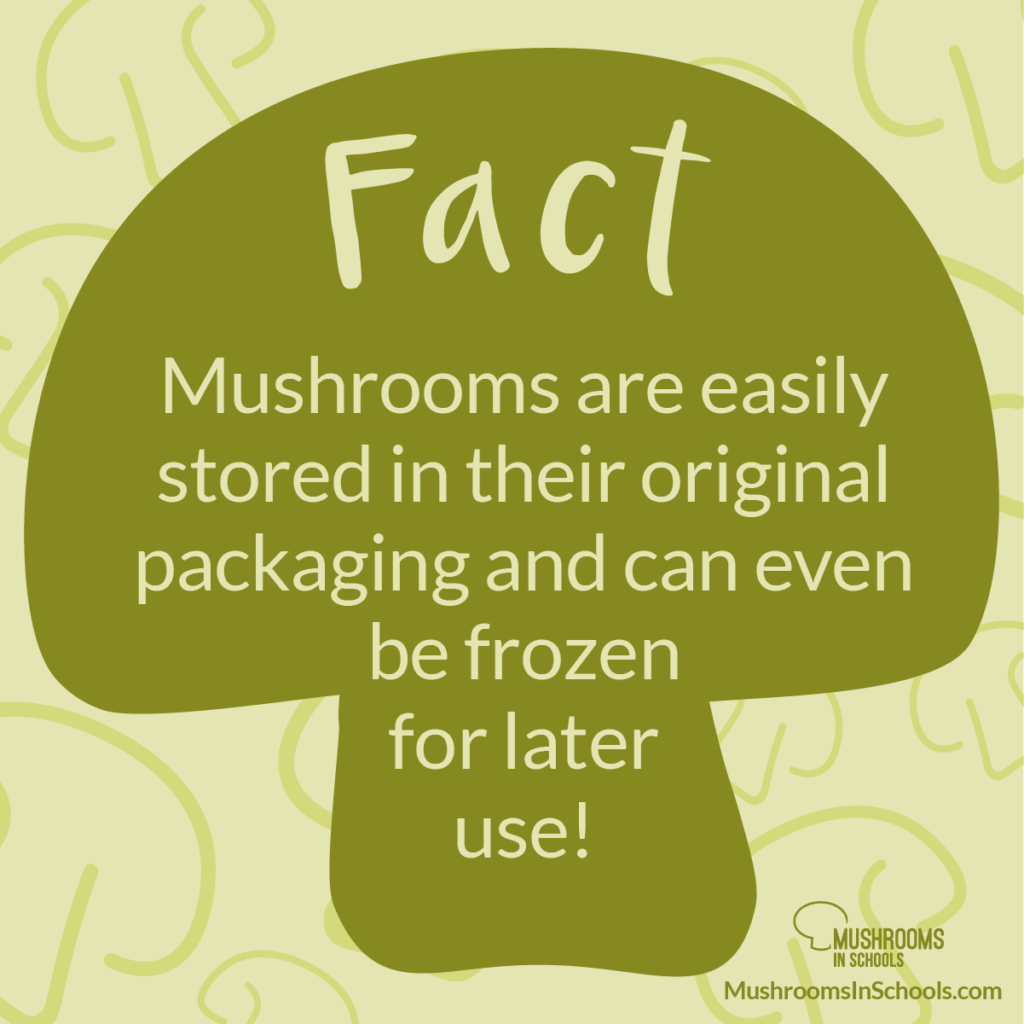
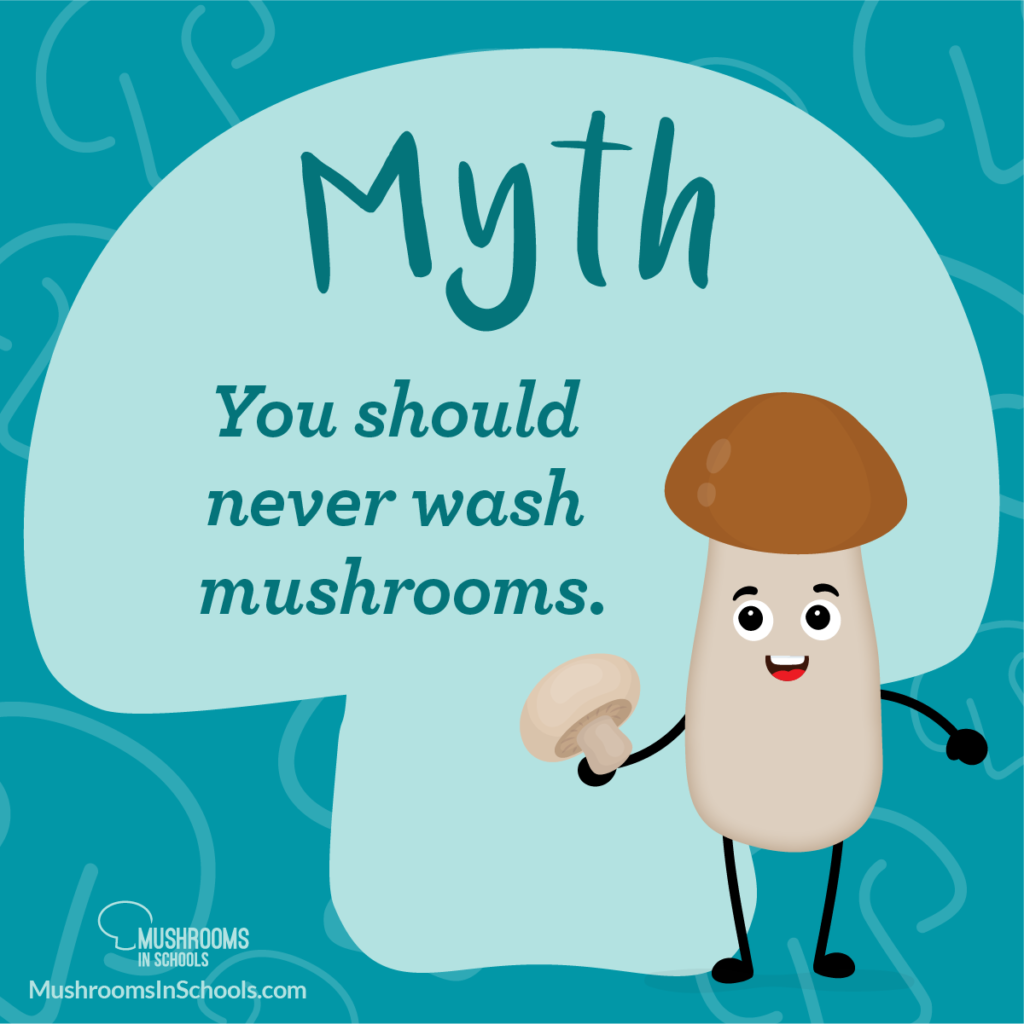
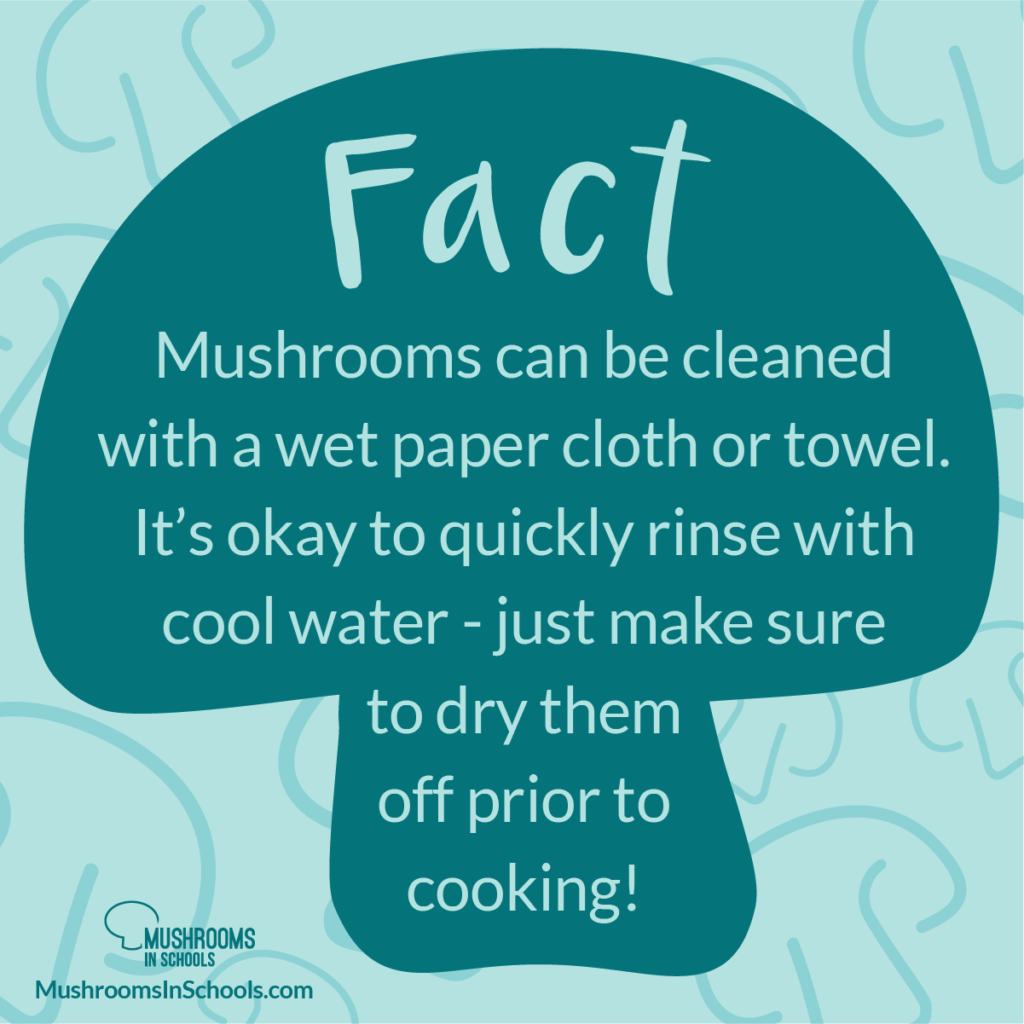
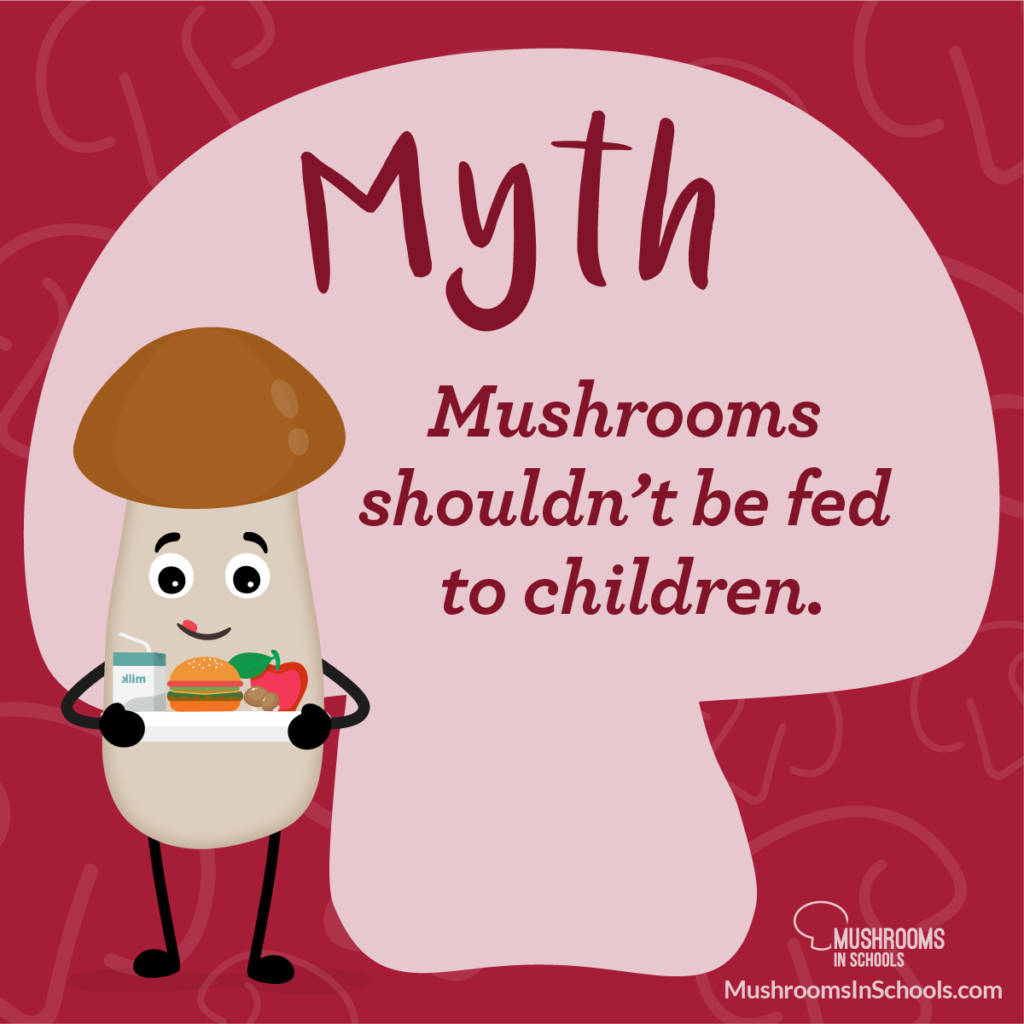
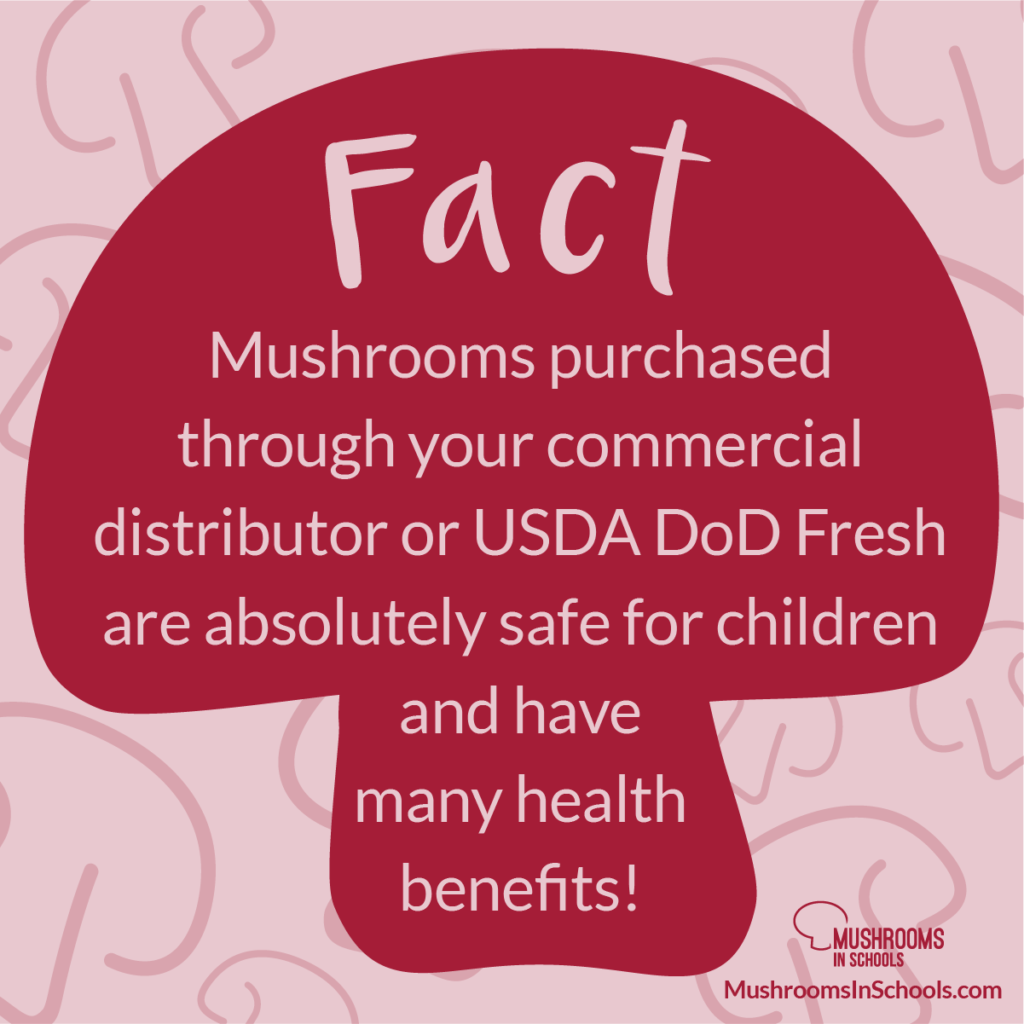
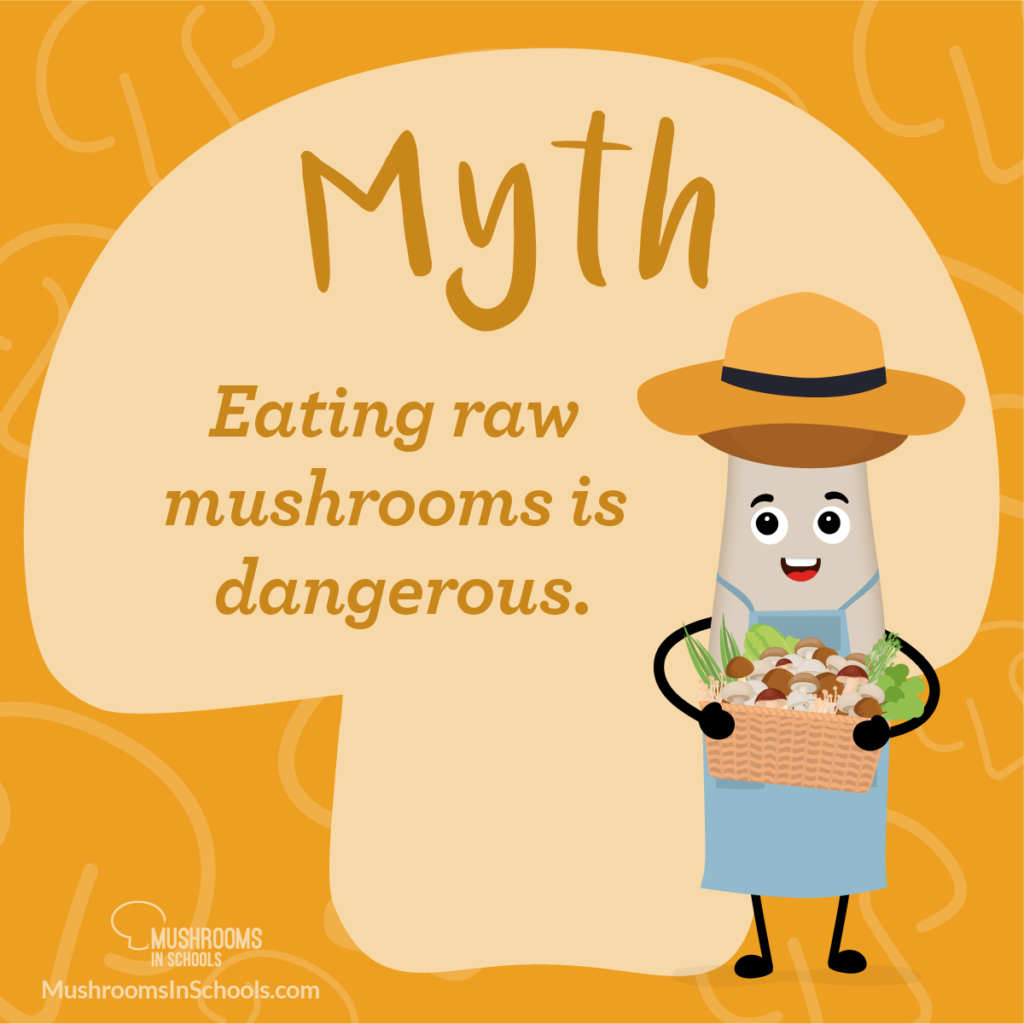
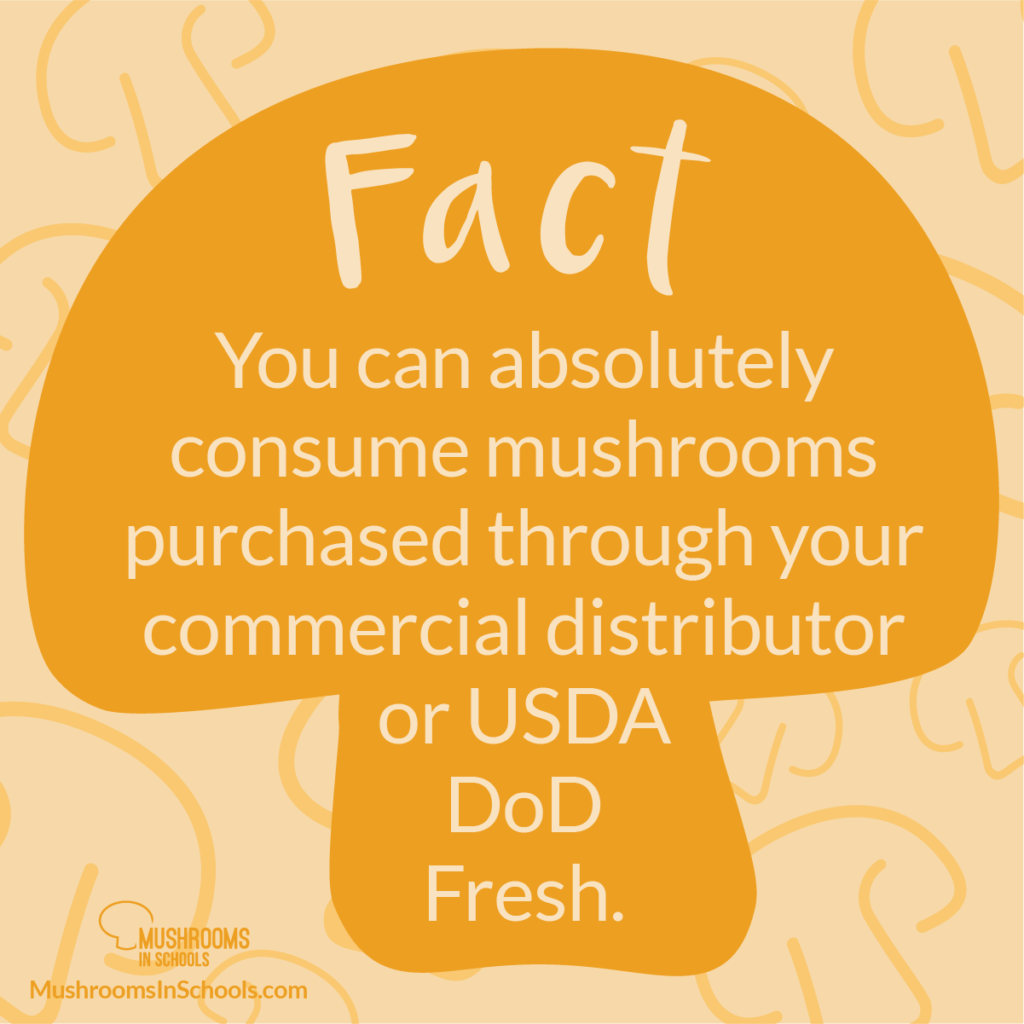
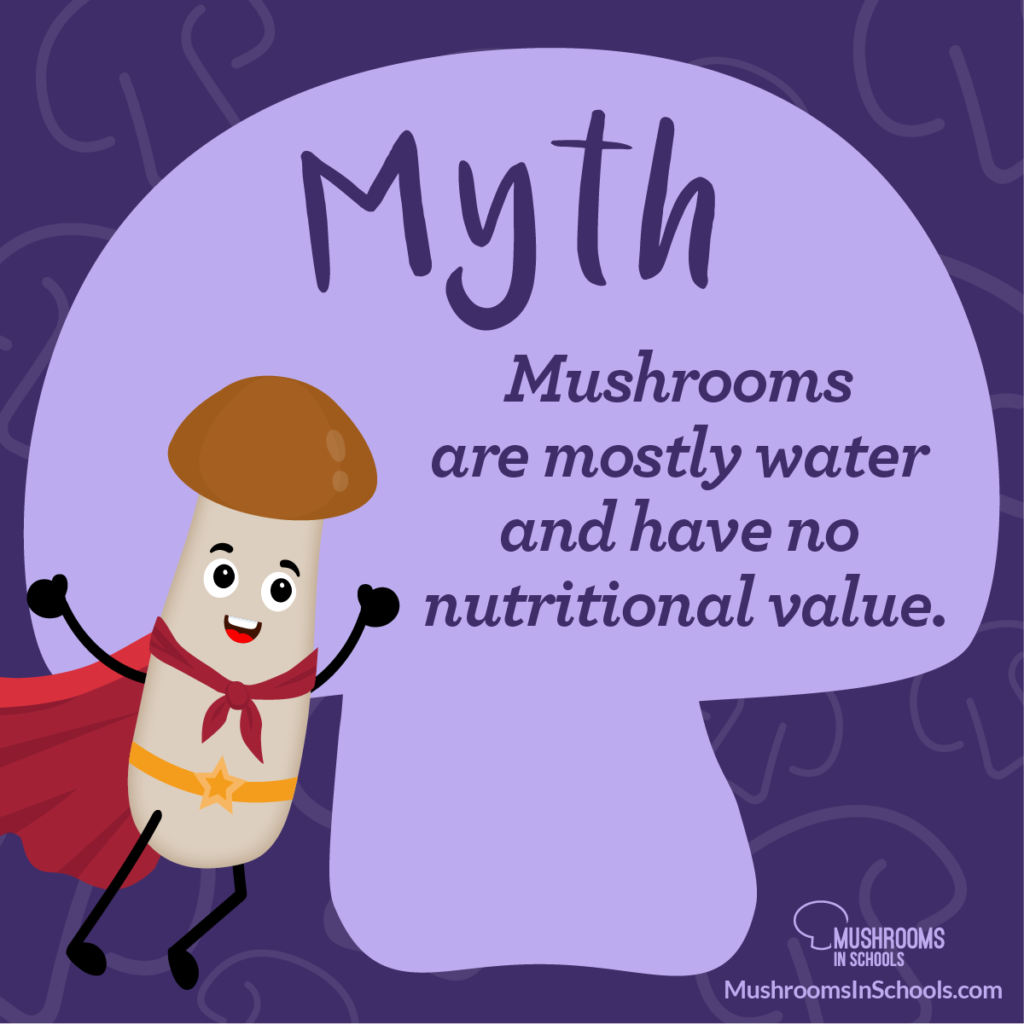
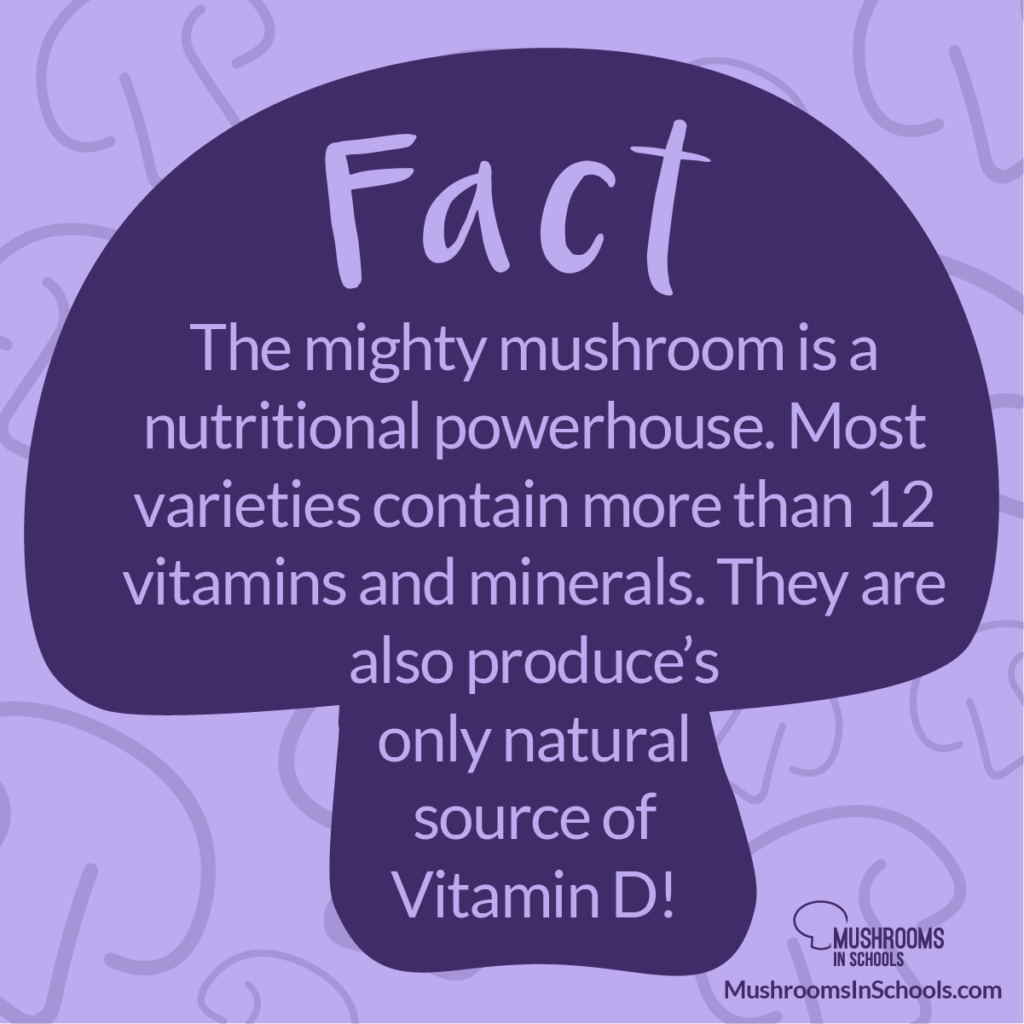
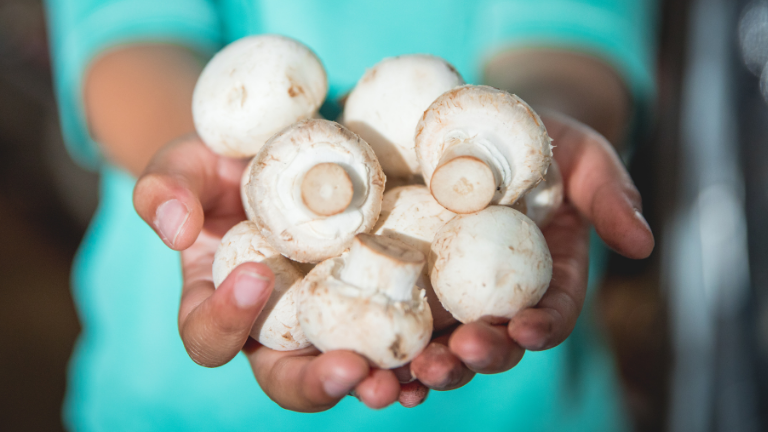
 Exploring Mushrooms
Exploring Mushrooms 
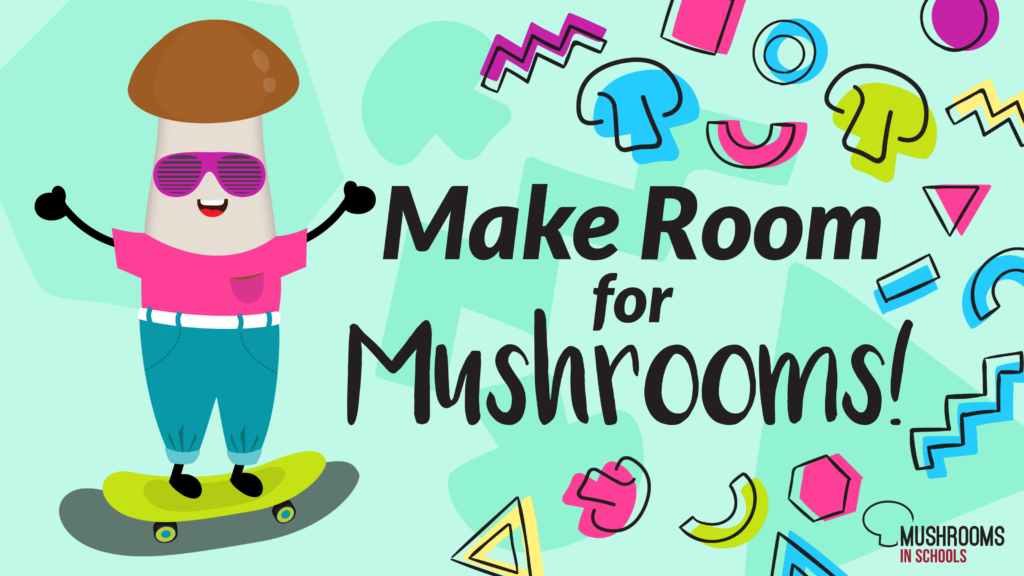

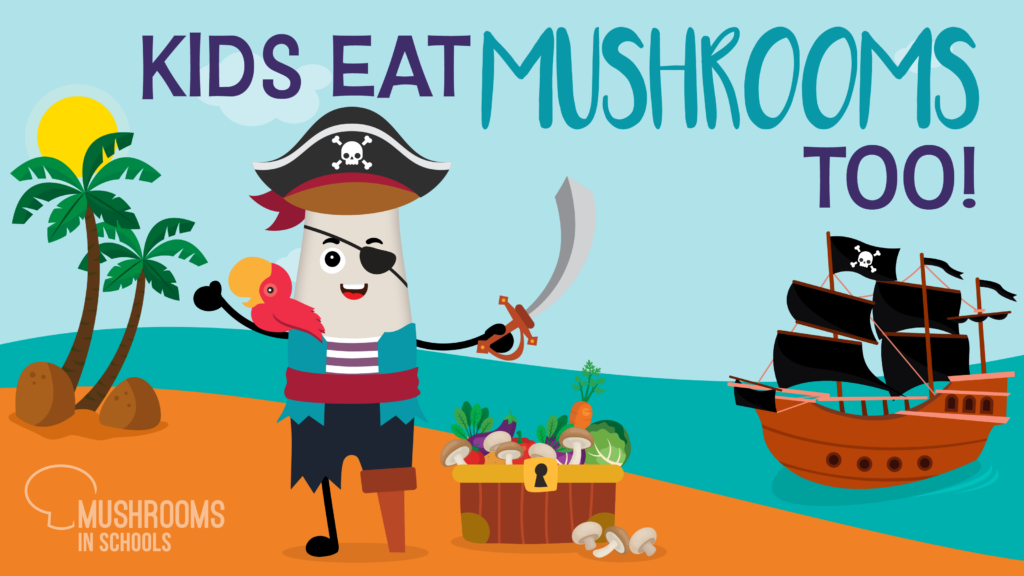

We collect, use and process your data according to our Privacy Policy.